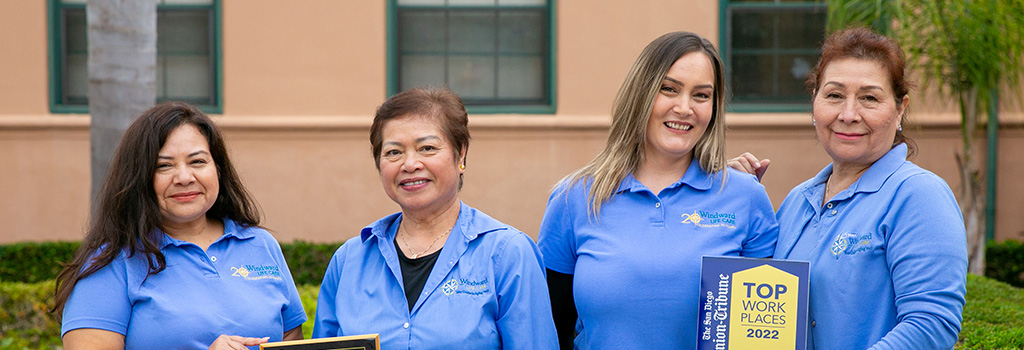The Benefits of Embracing a Second Language Later in Life
July 22, 2024 | Connectedness, Healthy lifestyles

In our interconnected world, the ability to speak more than one language can be an asset. But learning or maintaining a second language as you age also offers a treasure trove of benefits—mental, emotional, social, and cultural.
This is true for older adults learning a new language and for those who grew up bilingual but have drifted away from regular use of their non-English language.
If you’re wondering where to start, do an online search for phone apps, check out the classes at a local community college, and visit your library. You may be able to start for free or at very little cost.
Cognitive health and brain fitness
One of the best reasons for older adults to learn and use a second language is its impact on cognitive health. Studies have shown that bilingualism can delay the onset of dementia and other age-related cognitive declines. Using a new language involves complex processes such as grammar, pronunciation, and learning new words—all of which keep the brain active and agile. For those who grew up bilingual, re-engaging with a language can also rejuvenate these cognitive processes by reactivating parts of the brain associated with language and memory.
Enhanced decision-making skills
Bilingual individuals often have sharper decision-making skills. This stems from the practice of switching between languages, which enhances the brain’s ability to monitor the environment and switch tasks as needed. For older adults, practicing a second language can refine their ability to focus on relevant information and ignore misleading data. “Doing these types of activities actually expands your ability to handle new situations and be creative with your solutions,” said Patrick K. Porter, PhD, a neuroscience expert, in Real Simple magazine.
Social opportunities and connection
Learning a new language in later life can open up new social opportunities. Language classes, whether online or in-person, provide a social outlet and the chance to meet people from diverse backgrounds and age groups. For those revitalizing a once-familiar language, it can also reconnect them with cultural communities or family traditions that might have been neglected, enriching personal identity and community ties.
Cultural appreciation and openness
Using a second language brings one closer to the cultures associated with that language. This cultural immersion can deepen empathy, reduce age-related social isolation, and foster a sense of belonging and appreciation for diversity. For older bilinguals, diving back into a language can be like rediscovering parts of oneself, leading to increased self-esteem and cultural pride. Knowing a second language can also enhance travel experiences.
Mental well-being and lifelong learning
For some, the challenge of learning a new language is a refreshing break from the routine activities that often fill our days. For those revisiting a second language, it offers a rejuvenating challenge that can break the monotony of daily life and bring a renewed zest for learning. Learning anything can boost mental health by providing a sense of achievement and purpose.
It’s never too late to learn
Language learning is a rewarding endeavor at any age. It’s not just about learning to speak; it’s about continuing to grow. “You can improve all areas of your life by practicing a new language,” said Dr. Porter in the Real Simple article. Why not start (or restart) that language learning journey today? It’s never too late to embrace the benefits of bilingualism.

